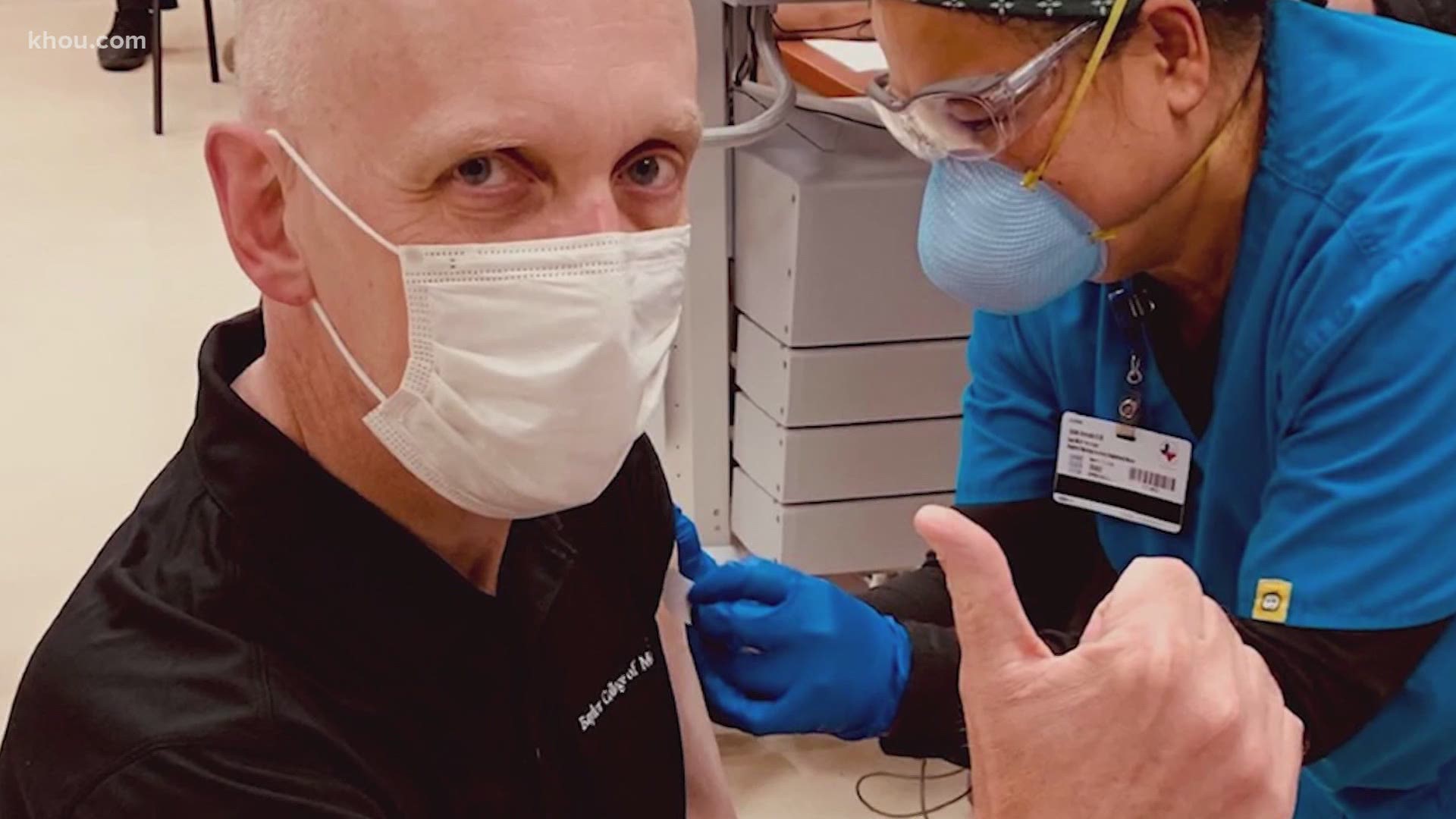HOUSTON — Some are still hesitant to get the COVID-19 vaccine for different reasons, but doctors are trying to ease those concerns.
When Dr. James McDeavitt with Baylor College of Medicine got his first dose of the COVID-19 vaccine Tuesday, it was his first step back to normal life.
“I want to play with my grandchildren. I want to take them out on little adventures. I want to go out to a restaurant again," Dr. James McDeavitt, senior vice president and dean of Clinical Affairs, said.
While he’s had no doubts, he’s heard hesitation from others when it comes to getting the shot.
One of those concerns he's heard is that "the vaccine was rushed."
“This has really been in the process since the early 1990’s with the original SARS epidemic, another coronavirus," Dr. McDeavitt said.
To that, he says it was fast, but not rushed. Because instead of the vaccine being funded after it’s made, which is what normally happens, this time it all happened at the same time.
“Those things were done in parallel rather than series. We did the trials at the same time the government provided billions of dollars to industry to produce the vaccine before we knew it was going to work, which was a huge bet, so it would be ready when the trials were done," Dr. McDeavitt said.
Another fear is that "the vaccine may impact fertility."
“I've looked into this. I’ve talked to people. That appears to be patently false. And more over, there doesn’t appear to be a rational mechanism to explain why it could possibly create infertility," Dr. McDeavitt said.
But what if you just want to wait and see, he says that’s fine.
“When we get up to the point of where we have a million people vaccinated, I think we’re going to have a very good sense of what the risk profile is for the vaccine and should have a much higher level of comfort," Dr. McDeavitt said.
But one group he would recommend hesitation to are those who get severe allergic reactions, who may be hospitalized for those reactions.
“I think it would probably be prudent to wait a little bit and see how things go, see what the recommendations come out to be, so that’s probably a valid concern, but affects a relatively small number of people," Dr. McDeavitt said.

